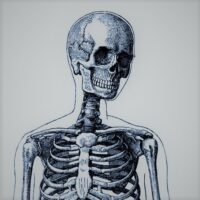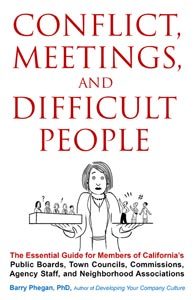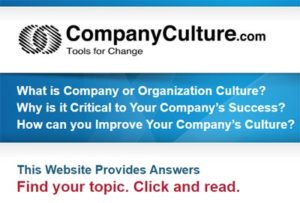Correction: Homo Sapiens Horribilis
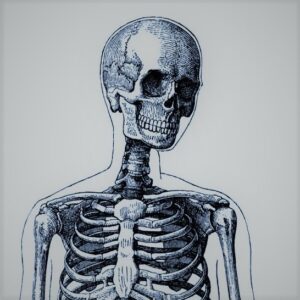 This blog gives full credits to Sapiens: A Brief History of Humankind, Yuval Noah Harari, Harper Collins, 2015.
This blog gives full credits to Sapiens: A Brief History of Humankind, Yuval Noah Harari, Harper Collins, 2015.
It’s easy to slide into a blue funk with yet another stay-at-home COVID shutdown, the craziness in Washington, D.C., and the rolling disasters at home and abroad. I was looking through old files, trying to understand the situation, and found some 2017 notes I made after twice reading the blockbuster, Sapiens by Yuval Harari.
They were a reality check, reminding me that what we now experience is a natural result of this strange evolutionary experiment that we call Homo Sapiens, or in Latin “wise man”. (Such perverse irony.) Here are my notes, hopefully, more enlightening than depressing.
♣
Imagination
One distinctive quality of the human brain is its imagination. Using language, we skillfully create structures that explain the world and create fictional but unifying stories that we collectively believe. This allows us to cooperate in large numbers.
No other animal does this. Our imagination and collective cooperation give us remarkable flexibility and adaptability, engaging millions of our species. You might say that all we have achieved comes from cooperation, enabled through language and imagination.
Our fictional stories include the divine right of kings, democracy, communism, capitalism, money, religions, corporations, science, human rights, life after death, states, voting, and economics. These are human creations — fictional stories — in which we all agreed to believe, thereby allowing us to work harmoniously together. The most successful of all our stories is money. In its beginning (when bartering was the only way) money was a hard sell. Today everybody believes in money. It is probably the only truly universal belief.
Legal Fictions
Many of these collective beliefs are also legal fictions, i.e. they have been incised in stone as law. Today our priests are not those who interpret a chicken’s entrails or the movement of planets, but rather lawyers, judges, and politicians who make and interpret our laws.
We largely control the world through a dual reality — the objective reality of the physical world (which we view through the abstractions of physics, chemistry, and biology), and our imagined fictional worlds created through our particular culture. These cultural fictions bring industrialization (and climate change), and ecological reshaping and depletion.
These fictional realities have become more useful and more powerful than objective realities. Ironically many of the objective realities of the world, such as rivers, other species, and the air we breathe, now depend on our fictional realities, which tell us we are separate from and dominant over nature. Today we have yet to develop a collective fictional reality that sees and treats our environment as a “person”, i.e. as the US Supreme Court has magically done with corporations. Corporations have more rights than nature. That’s true magic!
As machines and computers have become more useful, people have become more useless. As corporations have become more powerful, our community has weakened, while democracy becomes less representative.
Intelligence?
We define ourselves as the most intelligent of species, i.e. we have the largest brain capacity. We define intelligence as what we, homo sapiens, have. That’s circular reasoning — and dubious.
Outside of this self-definition of intelligence, what evidence do we have that we are the most intelligent? Judging from how we behave — destroying each other and our environment — where is the data, where is the evidence? No other animal has prisons, slaughterhouses, genocide, religious wars, and millions of displaced refugees.
We imagine evolution has favored us, rather than seeing ourselves as one of the many random possibilities that evolution creates.
We may see many of the divisions of Homo Sapiens — African, Jew, Asian, Muslim, aboriginal, Christian — as less than us. We believe other is less-than. Tribalism reigns.
Self Destruction
We are self-destructive in many ways. We have built a Culture-Against-Man that’s out of sync with the environment. We are overrunning the planet with our waste, constructions, activities, and even the number of bodies, thus destroying its ecology with the voracious hunger of our consumer society.
Historically we have eliminated all other Homo species — along with 99% of all large animals. In our drive for world domination, the destruction of other living things is merely collateral damage.
We seem to have accepted this without any concern or regret (though we may contribute to the Sierra Club and other like nonprofits). We do offer a few complaints about our endangered planet, though we are not serious enough to do anything of the right scale about it. In fact, in the United States, one political party is dedicated to blocking any corrective action.
Evolution cares no more for homo sapiens than for anything else it creates. We may mourn our species’ inevitable demise, but evolution will not notice our passage. While we individually enjoy our lives and cultural creations — intimacy and relationships, the arts, our great cities, medicine, Facebook, etc. — from the planet’s perspective, Homo Sapiens is a poor, even disastrous, evolutionary experiment. The sooner we move along, the better.
______________
Culture
After language, perhaps our greatest creation is culture. Culture gives our lives meaning. It’s through our culture that we create and understand the world. Though cultures are infinitely varied, everyone in a particular culture experiences it as inevitable and appropriate. Clothing illustrates cultures’ variations.
We always dress appropriately for our culture. Could we imagine doing otherwise? These four outfits are each culturally appropriate, perfectly correct.
LEFT-New Guinea, Your Everyday Penis Sheath. CENTER LEFT, Japan, Meiji Power Outfit. CENTER RIGHT, France, 1700s Man About Town. RIGHT, USA, Business Suit.

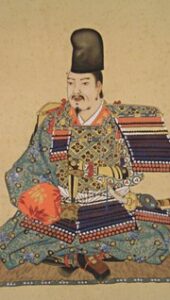
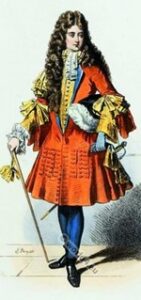

In today’s mercantile “world culture,” the USA Business Suit (how well-named and boring) is usually appropriate — the New Guinea Penis Sheath, not so much.
The Takeaway
Our created fictional realities seem inevitable and timeless. That’s the very essence of culture. But effectively managing ourselves and the planet will take some new fictional realities — moving beyond tribalism, adversarial decisions, separation, discrimination, inequality, and consumerism. Difficult but possible.
Cultures are very stable, but with the right leadership, they can suddenly change; for example, our own swift shift from monarchy to democracy in 1776. I’m hoping new leaders will rise to create these new needed fictional realities (agreed on stories) necessary for managing the world we are handing to future generations. Our current fictions are barreling us towards dystopia.
Please give me your ideas or suggestions on this or other blogs. I do appreciate your feedback.
Thank you.
me, Barry Phegan
Add Your Name below to my list to know when I have posted a new blog.

